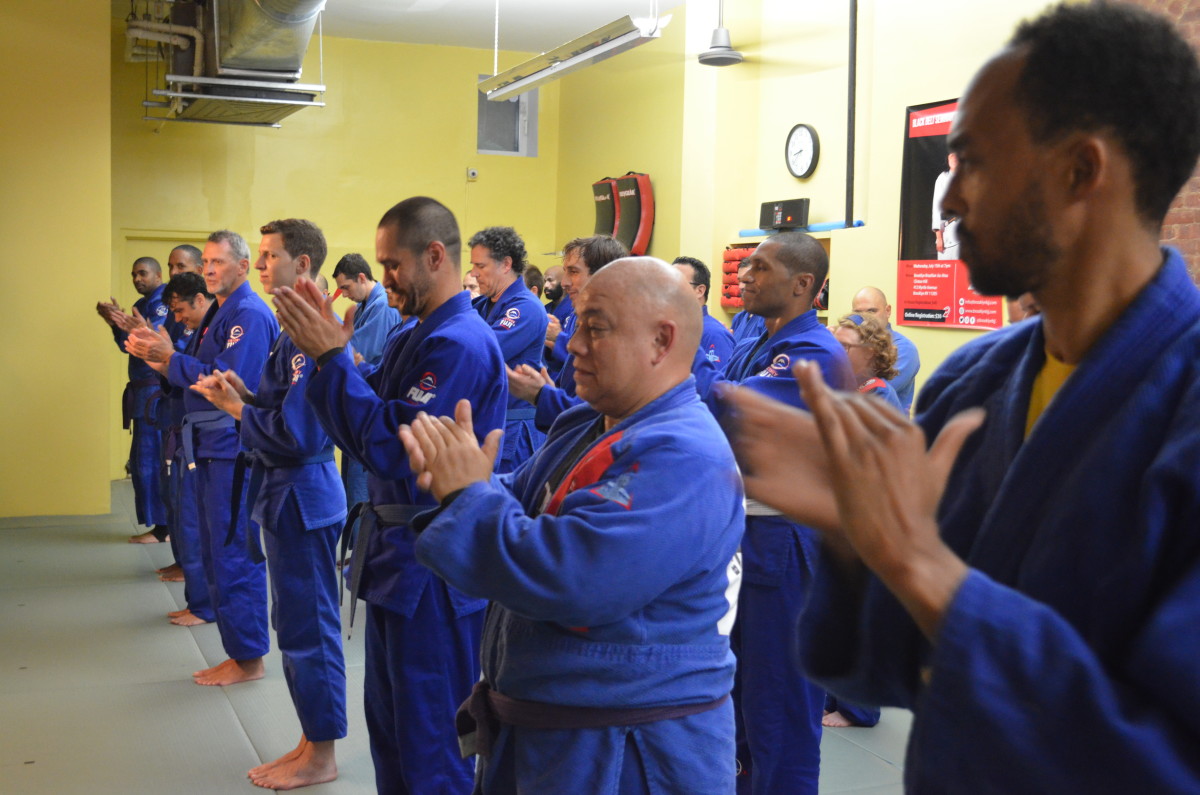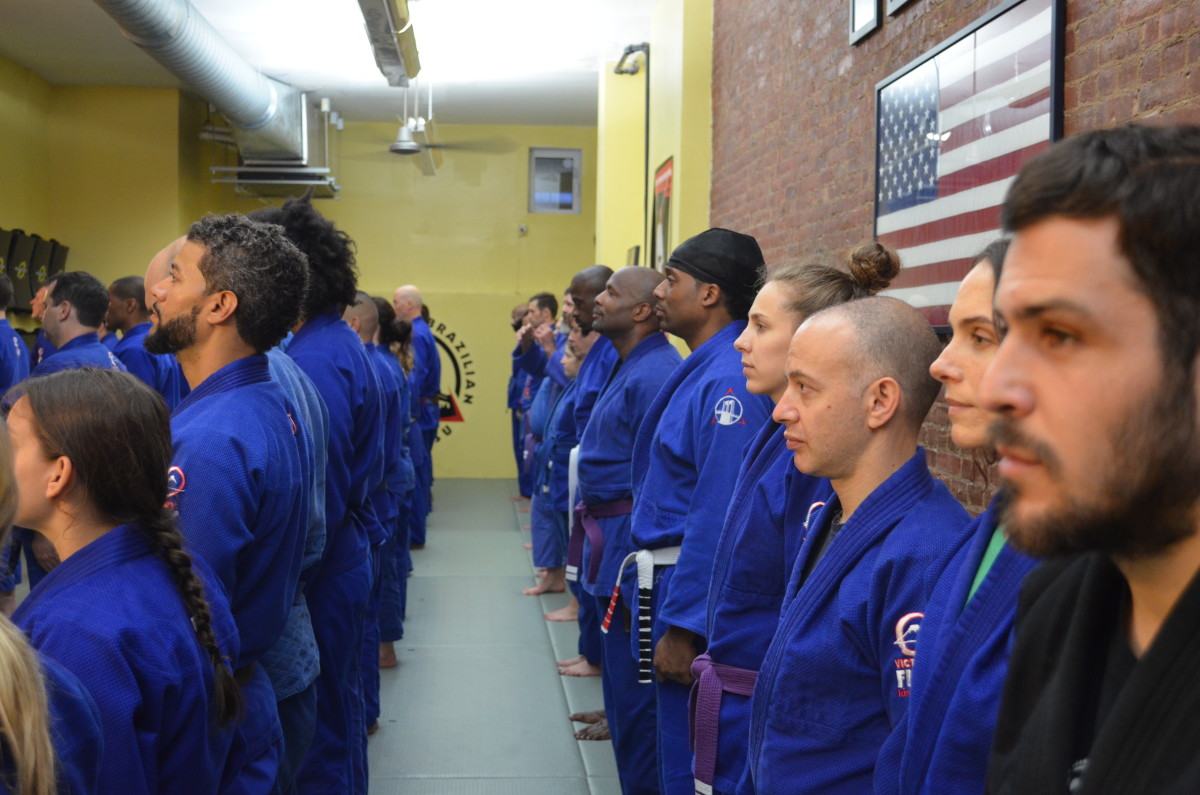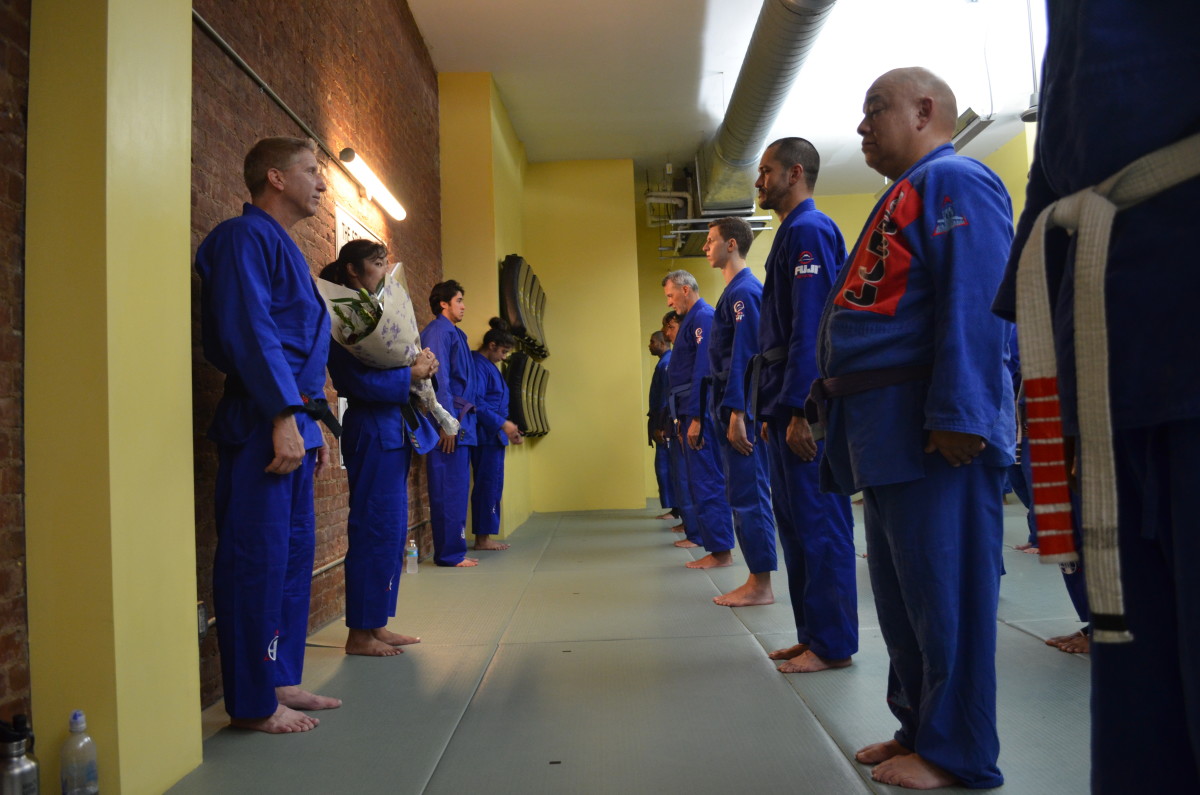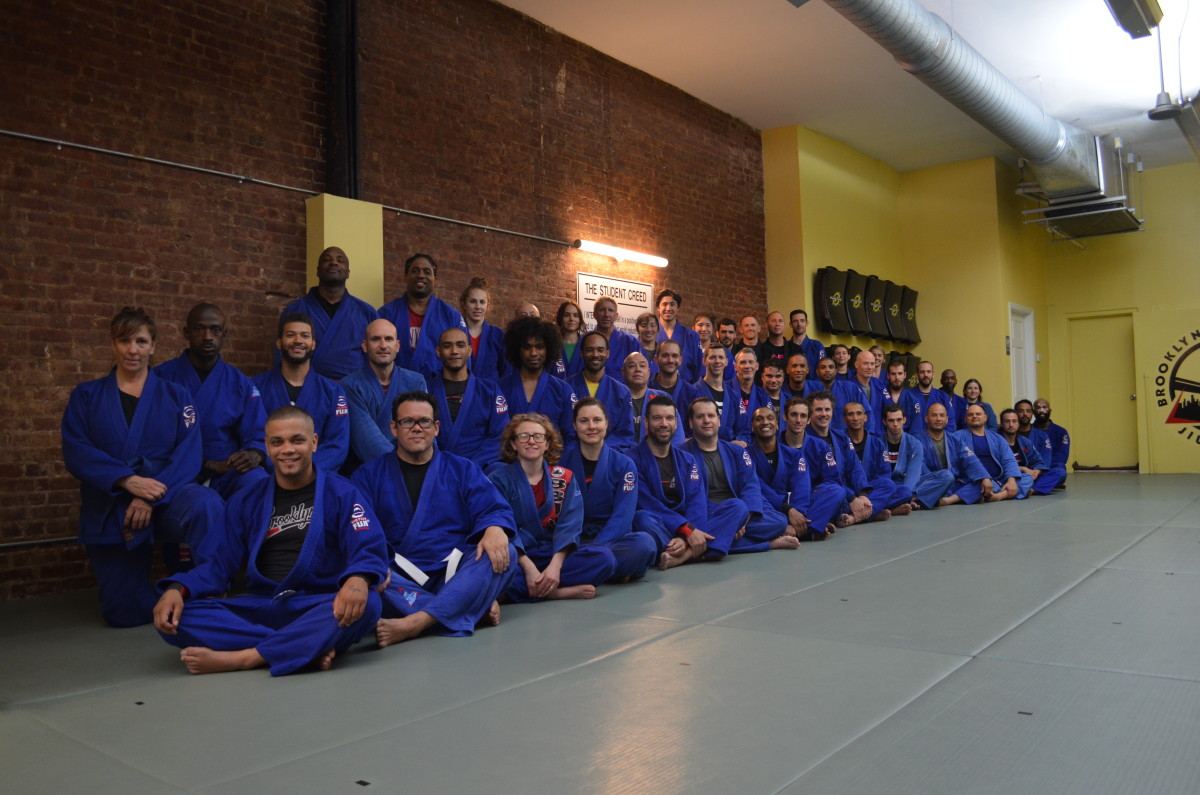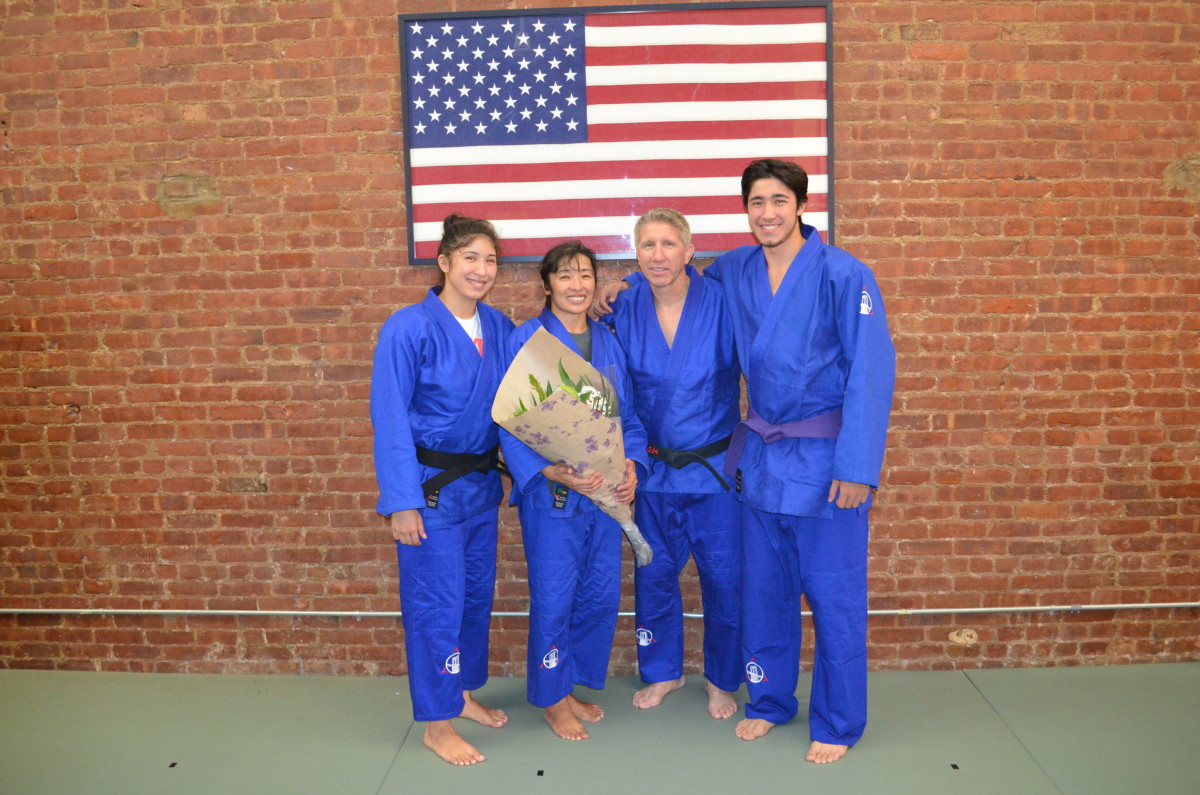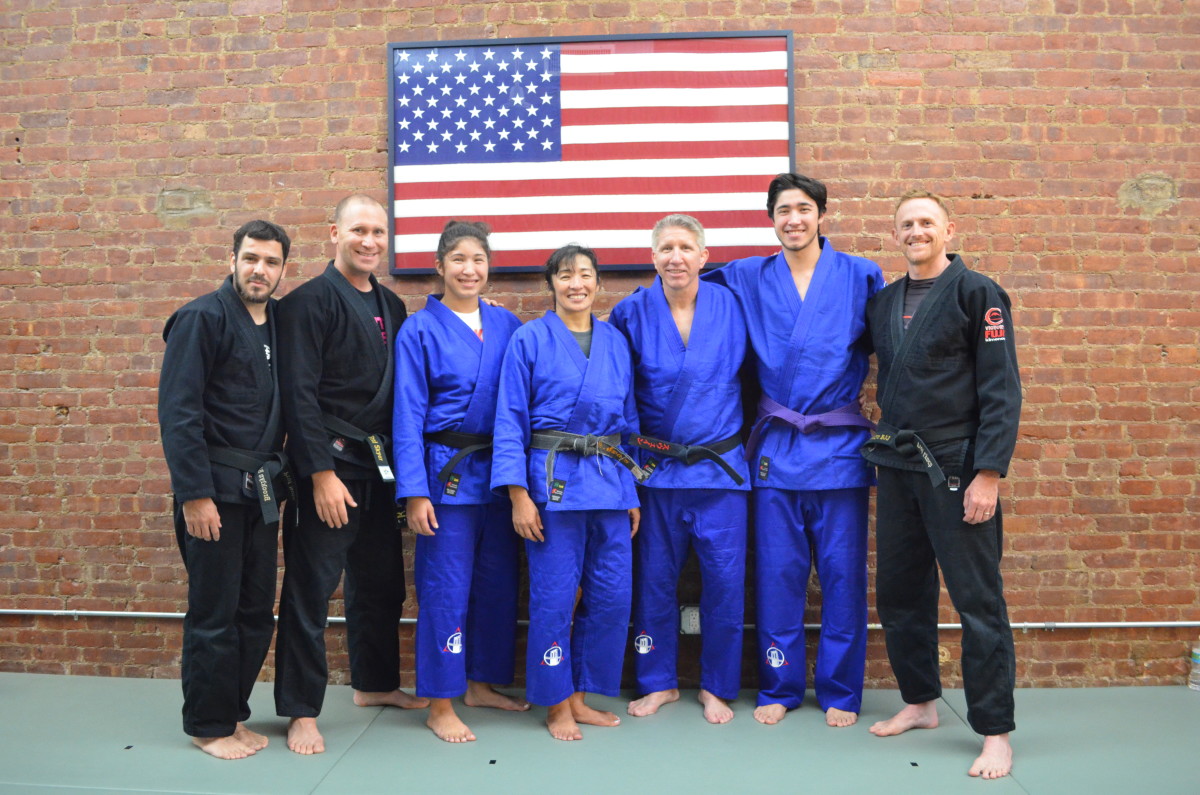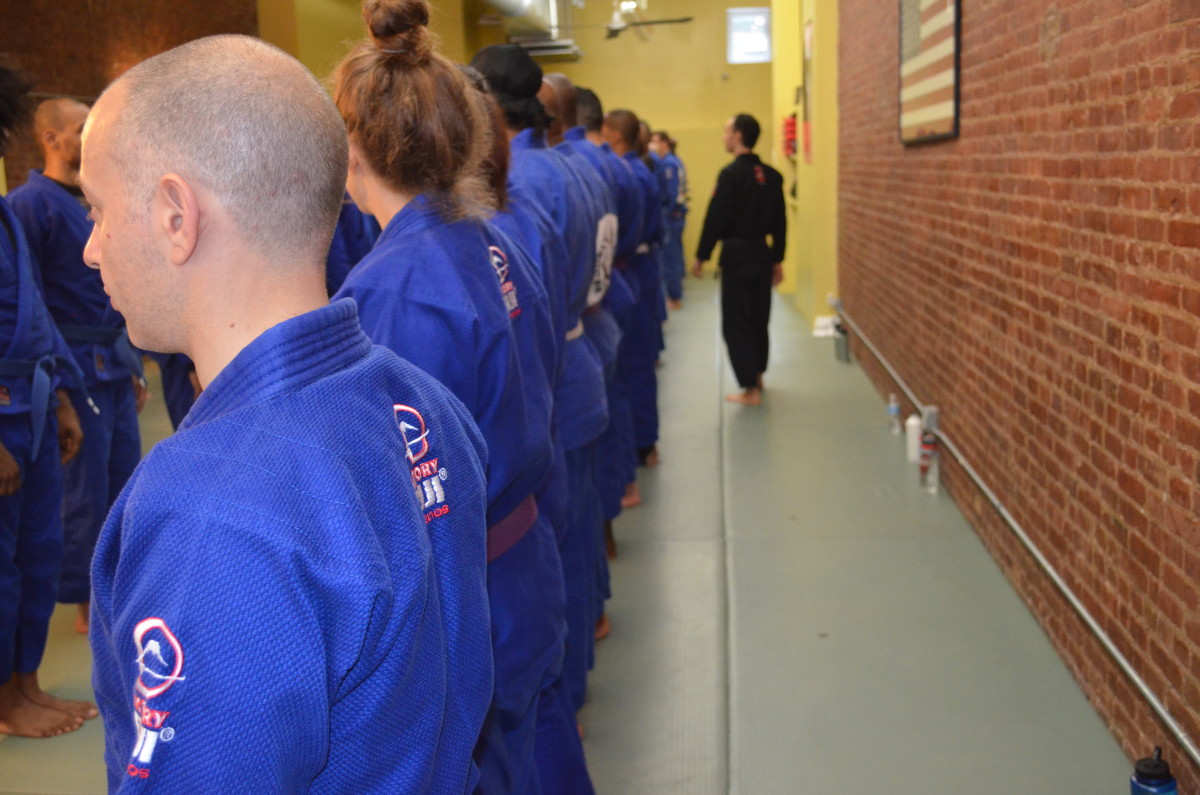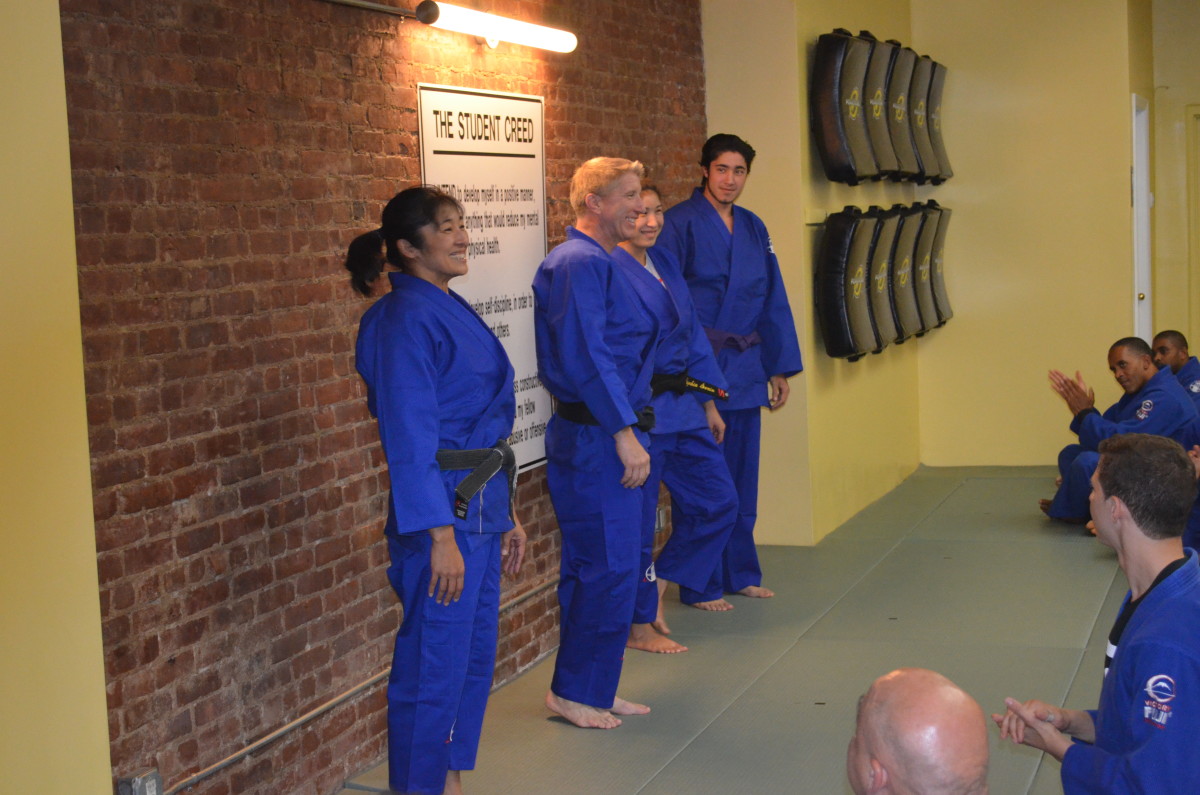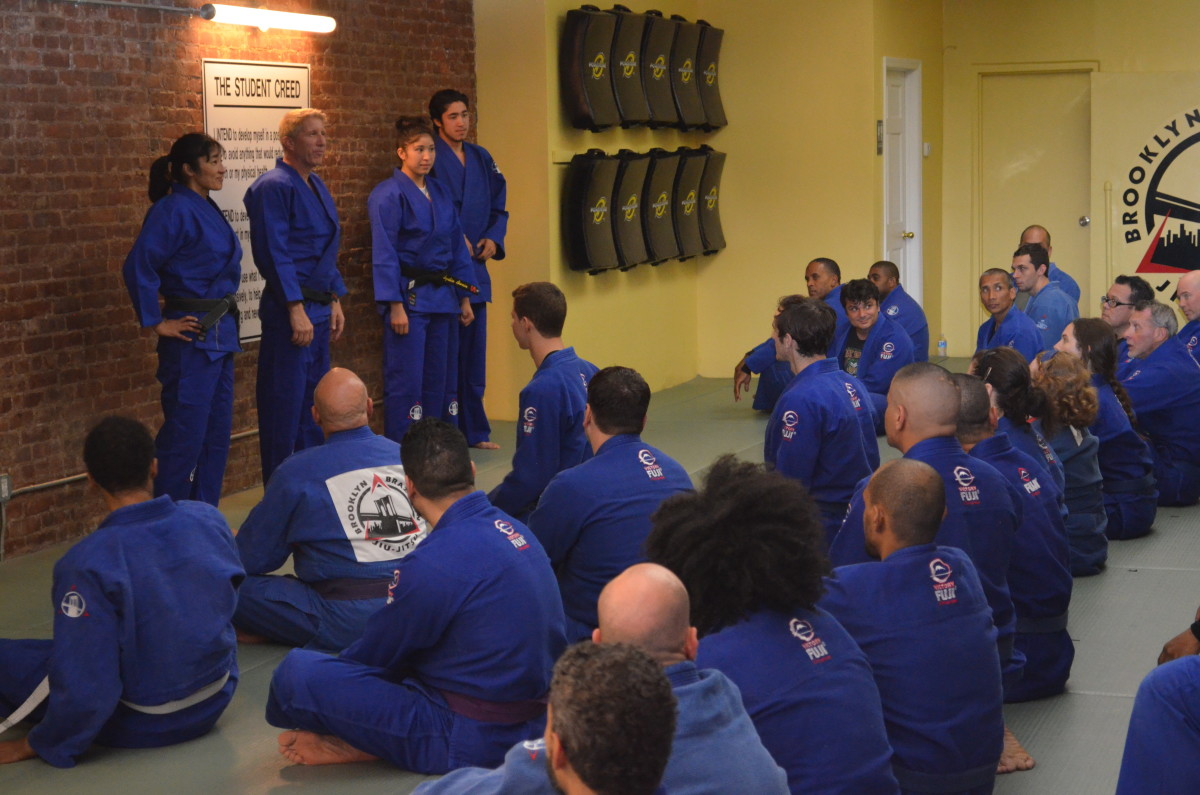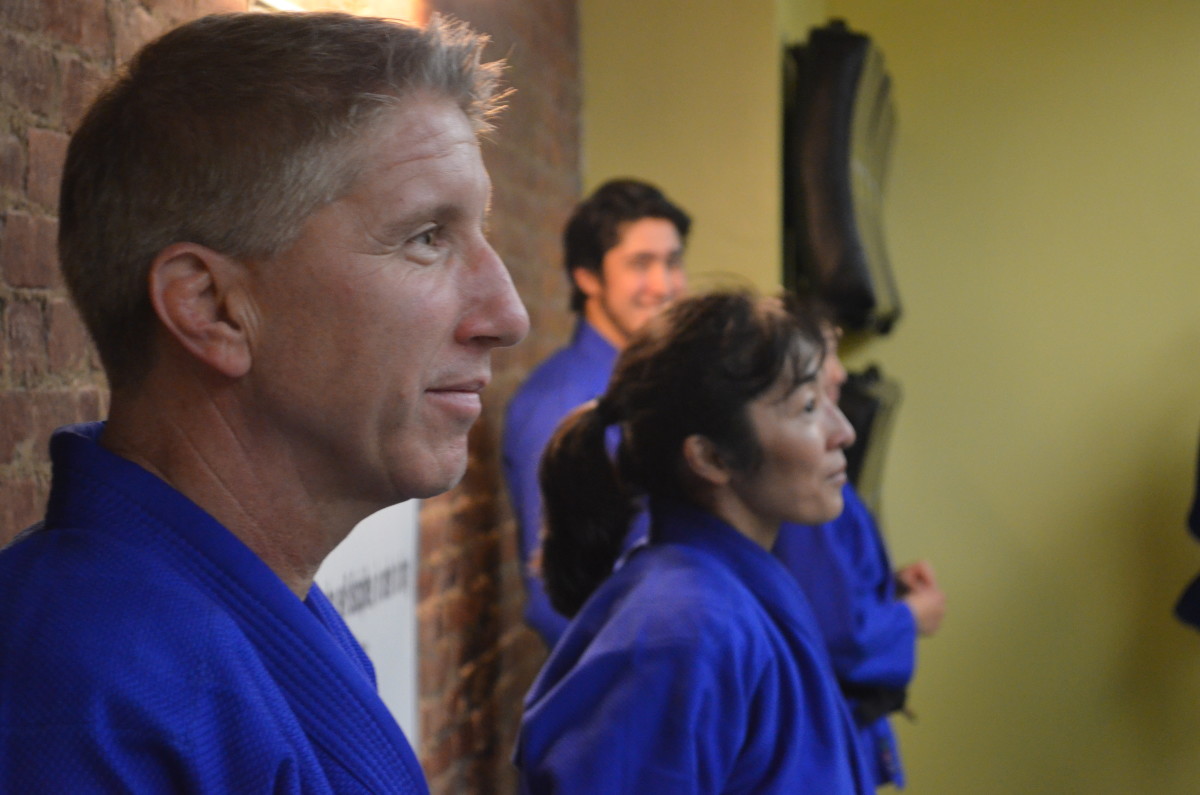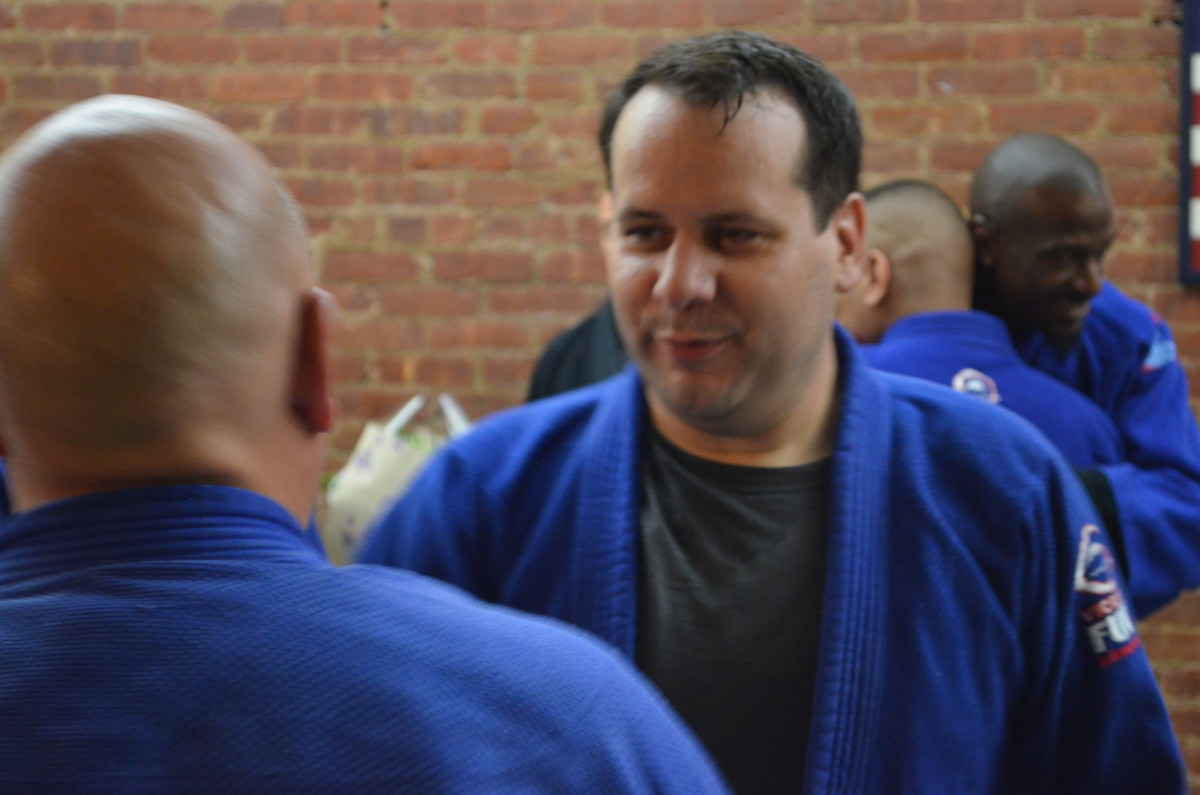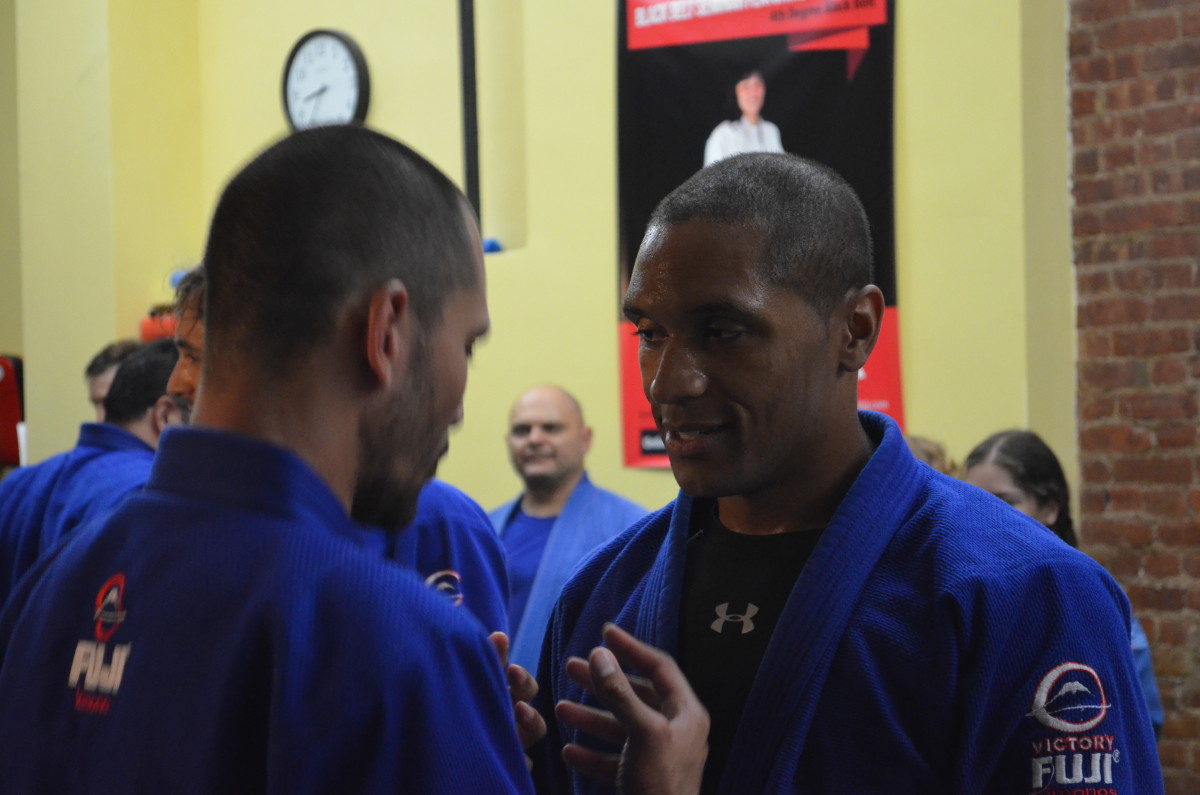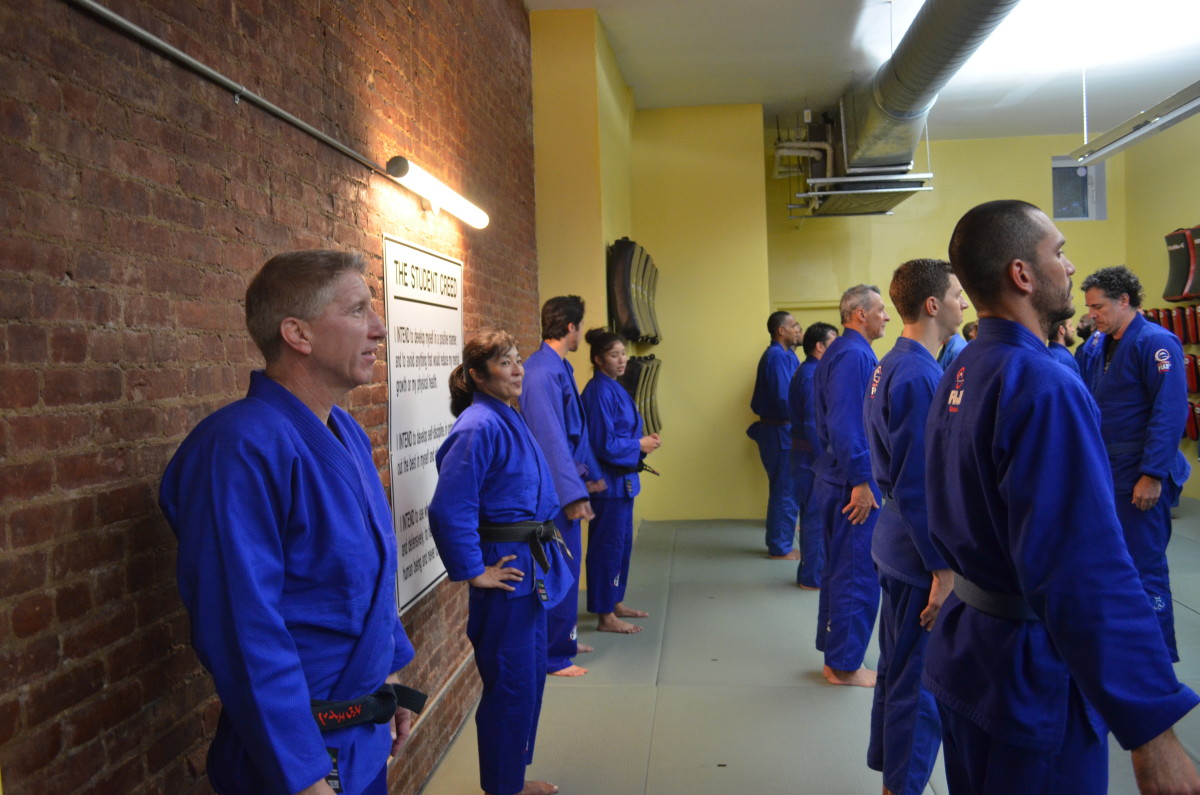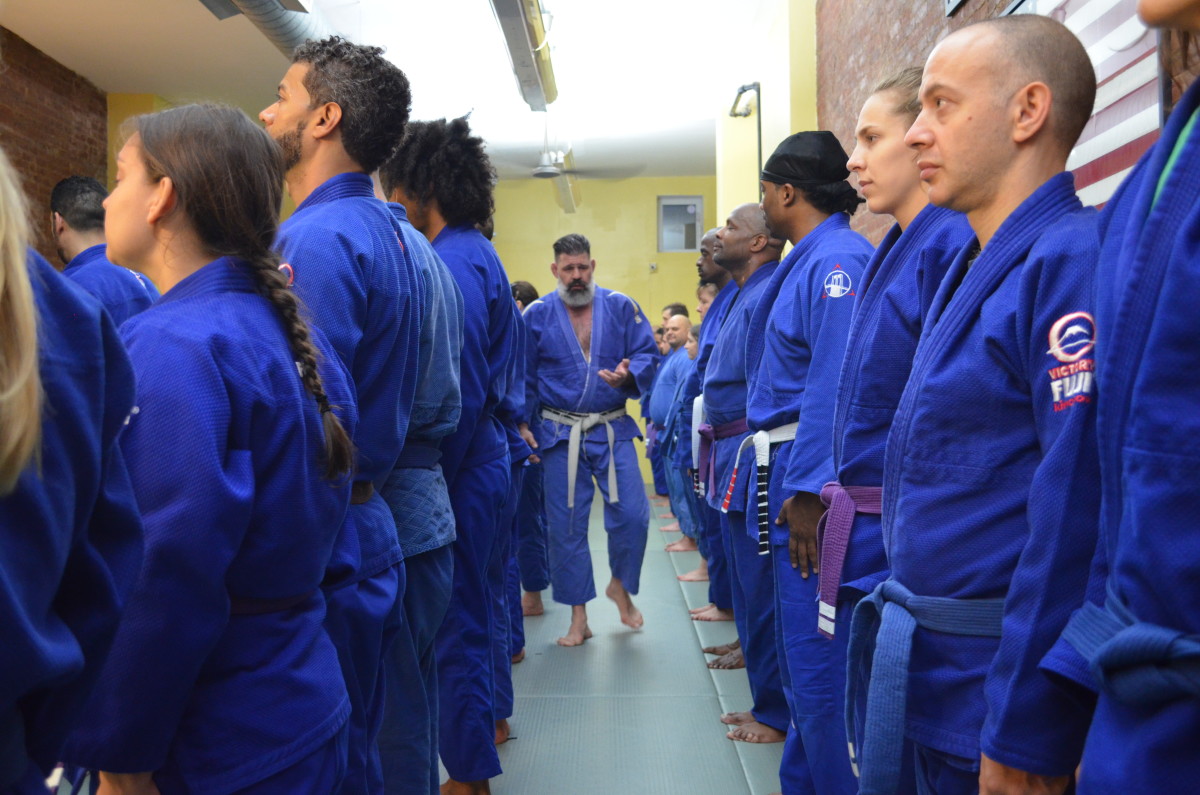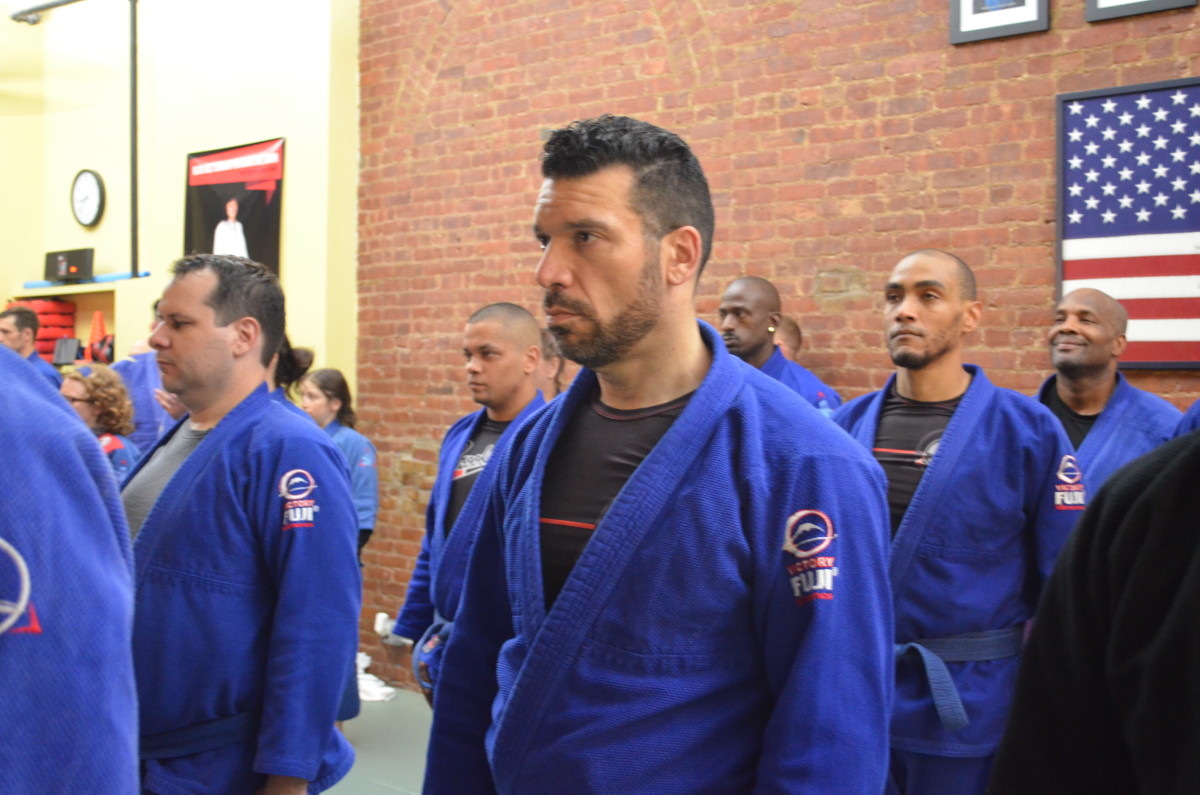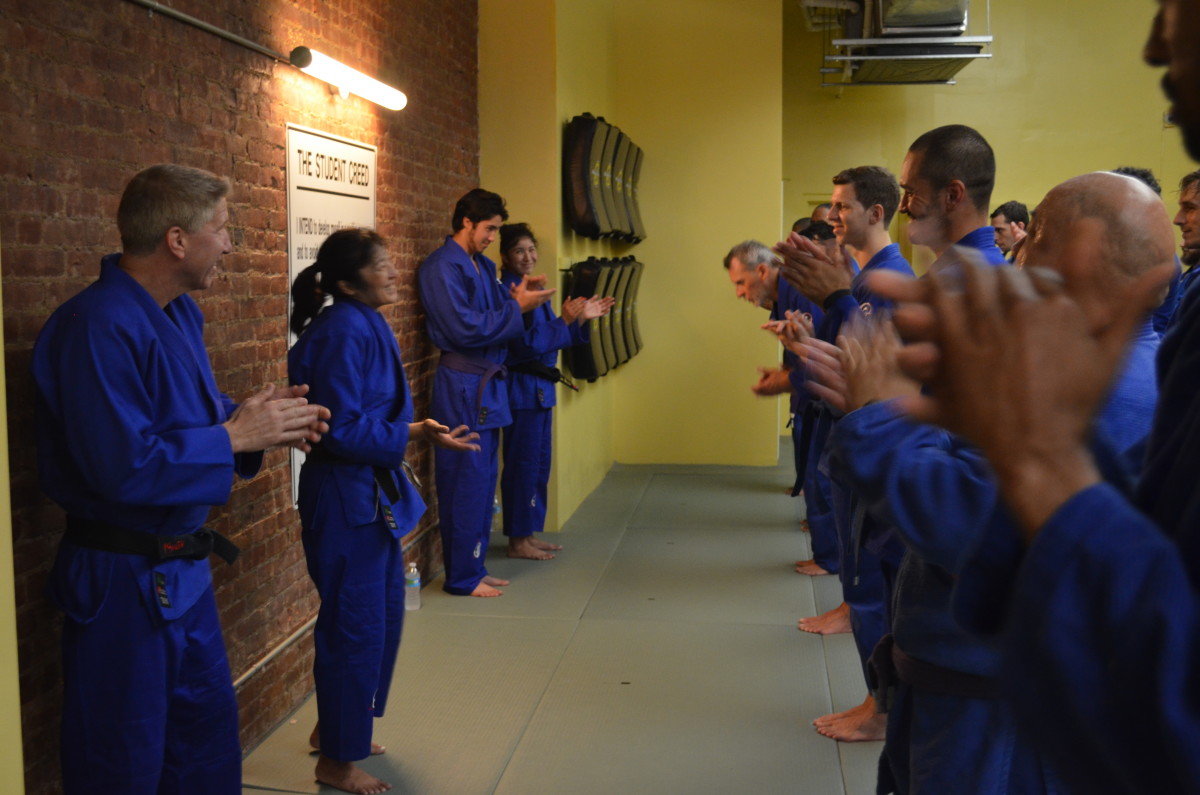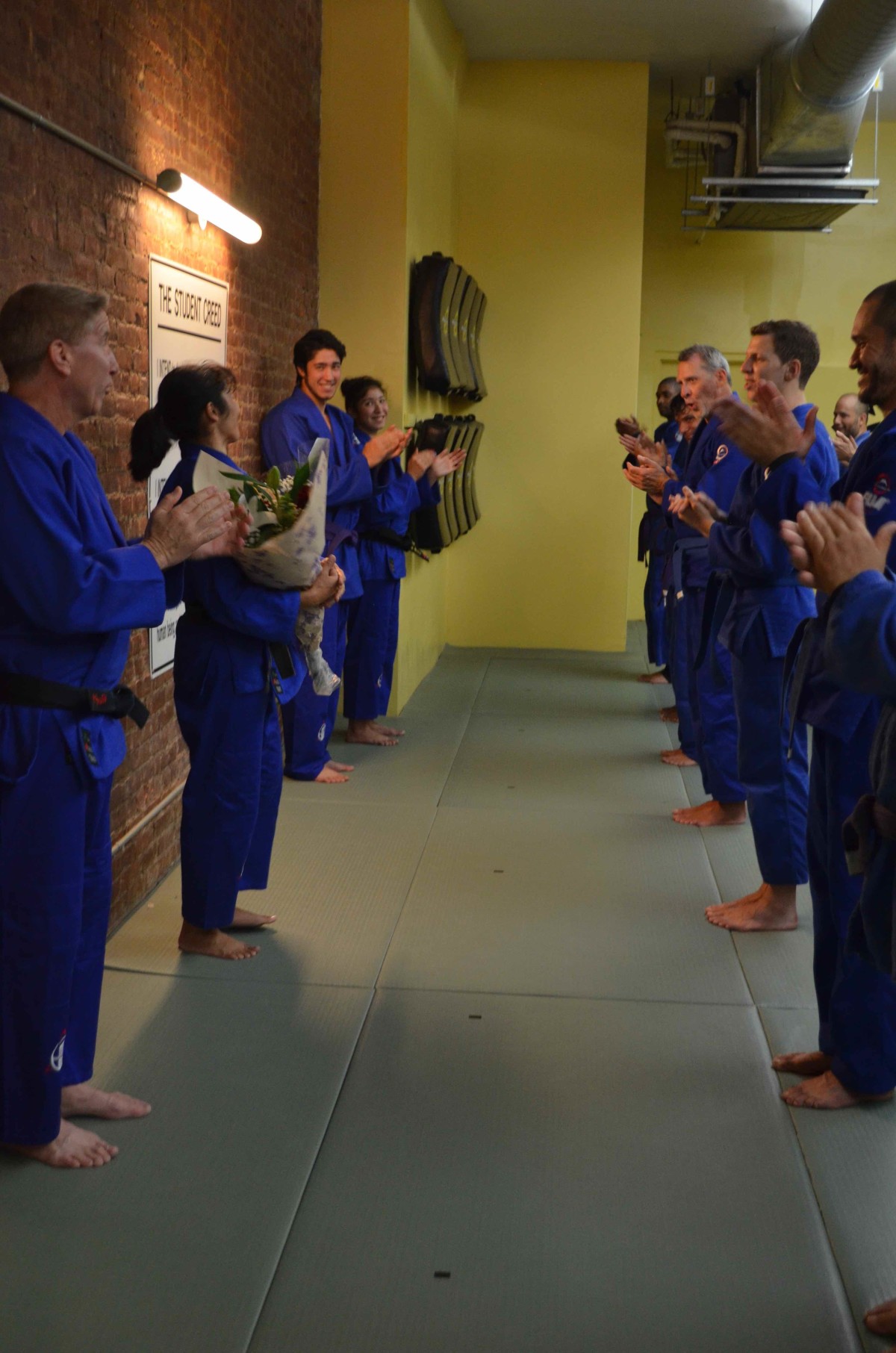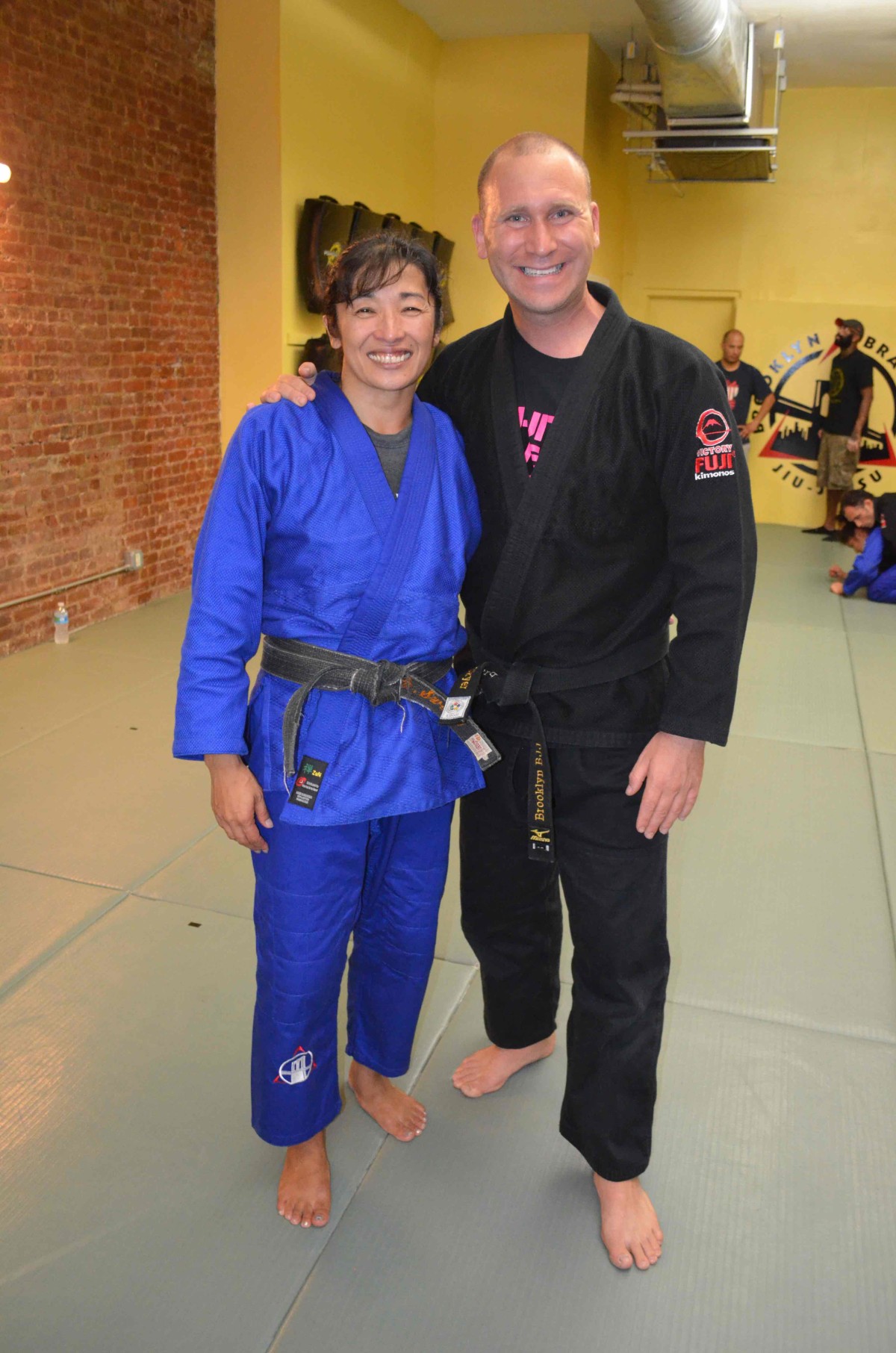It’s possible to begin at the very bottom and get to a much better place. This is, literally, one of the central lessons of Jiu-Jitsu in Brooklyn or anywhere else in the world. The message is that anyone can learn the techniques and strategies to stay safe when faced with danger.
Of course, it’s easy to just say that anyone can do it – it’s a much different enterprise to actually create the conditions for people of all ages and stages to succeed.
So there are a few important prerequisites – a safe environment, a caring and knowledgeable instructor, a supportive community, some clear goals. When those are met, we can basically create something from nothing.
Where before we were scared, now e can feel empowered.
Where once e were uncertain, now we can be decisive.
Where we used to be weak, now we can be strong.
Provided that we don’t sacrifice our values in order to ascend the ladder, this is what “success” looks like in the martial arts.
(We still have to constantly be vigilant about guarding what’s most valuable to us. It’s important to beware of what we become in the pursuit of what we want.)
The first step in learning Jiu-Jitsu comes with the vision of what we’d like to become. To imagine all the possibilities and outcomes of the journey we’re undertaking.
Sometimes this sits below the surface, which is why having a mentor in the martial arts can be so important – to anchor a realistic vision of where we’re going. That’s one of the biggest “keys” to getting started.
Some people want to have it all laid out at the beginning, but this just isn’t how it all works. If we want to see it, we have to believe it. Setting a goal in Jiu-Jitsu means committing to the journey, both the parts we can imagine and predict…and those we can’t.
On to the next step: we have to believe that what we’re starting to imagine is possible for us to achieve. We get glimpses of this when something goes right for us in the class or in training.
Or in the classroom, we watch one of our peers execute a technique or movement very well and it inspires us to do it ourselves. We say, “if one of us can do it, any of us can do it” – that’s a way to support the belief.
We can also be our own evidence. In other words: if we’ve overcome a challenge once before, it means that we can do it again.
If we did it 6 months ago, we can do it now. This is one of the best ways to get away from negative thinking or “being in the valley”.
The moaners and groaners love to look at failure and use it as evidence, but those who push through trouble tend to use their own successes as evidence that they can get through the next thing.
It’s a powerful skill to develop – creating the discipline to envision a broad goal, and then to believe that what others have done is also possible for us.
The seeds of that success are in the language and experience of Jiu-Jitsu. With the vision and belief (or goals and motivation, in the language of the dojo), e can actually turn nothing into something and have something of real value in our lives.






